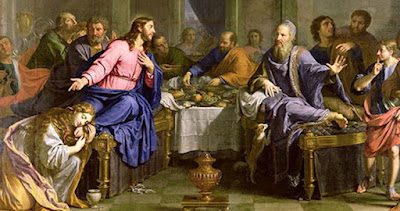John Paul II’s Prayer to Our Lady of Guadaloupe
O Immaculate Virgin, Mother of the true God and Mother of the Church!, who from this place reveal your clemency and your pity to all those who ask for your protection, hear the prayer that we address to you with filial trust, and present it to your Son Jesus, our sole Redeemer. Mother of Mercy, Teacher of hidden and silent sacrifice, to you, who come to meet us sinners, we dedicate on this day all our being and all our love. We also dedicate to you our life, our work, our joys, our infirmities and our sorrows. Grant peace, justice and prosperity to our peoples; for we entrust to your care all that we have and all that we are, our Lady and Mother. We wish to be entirely yours and to walk with you along the way of complete faithfulness to Jesus Christ in His Church; hold us always with your loving hand. Virgin of Guadalupe, Mother of the Americas, we pray to you for all the Bishops, that they may lead the faithful along paths of intense Christian life, of love and humble service of God a...














